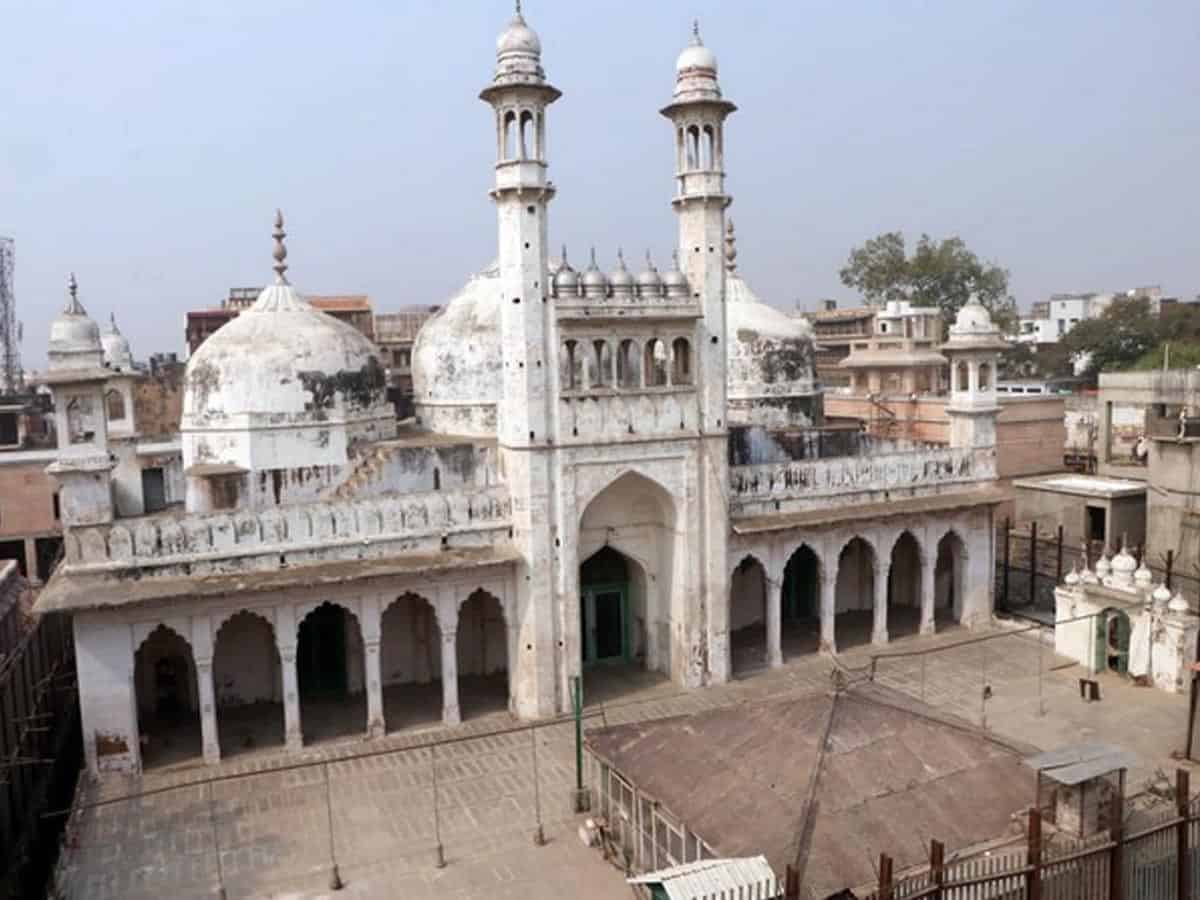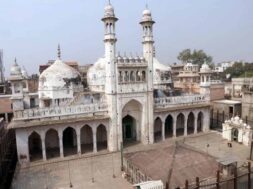
Manas Dasgupta
NEW DELHI, July 21: Accepting the plea of the Hindu women petitioners, the Varanasi district court on Friday permitted a “scientific survey” by the Archaeological Survey of India (ASI) of the entire Gyanvapi complex, barring the sealed ‘wazukhana’ area, to ascertain if the mosque was built over an ancient temple.
Delivering the judgement which he had reserved on July 14, the court of A K Vishvesh upheld the petition of a group of four women devotees seeking a scientific survey to find out whether the Mosque had been constructed over a pre-existing structure of the Hindu temple.
The court asked the ASI to submit its scientific report by August 4.
The survey would not include the ‘wazukhana’ area which was barricaded under orders of the Supreme Court last year after a structure was detected in the area which the Hindus claimed to be a ‘shivling,’ while the mosque trust maintained it to be a part of fountain.
The order is likely to be challenged in higher courts by the Muslim opponents who had been opposing the scientific survey claiming that it could damage the mosque complex. The Court has directed that the scientific survey by ASI should take place between 8 and 12 am and, clarified that there will be no restrictions on namaz and no damage should be caused to the mosque.
“I have been informed that my application has been approved and the court has directed to conduct an ASI survey of the Gyanvapi mosque complex, excluding the Wazu tank which has been sealed,” Vishnu Shankar Jain, representing the Hindu petitioners in the case, said. “It’s a turning point in the case,” said Advocate Subhash Nandan Chaturvedi, who is also representing Hindu side in the Gyanvapi case.
A videographic survey of the Gyanvapi complex, located next to the Kashi Vishwanath temple, was conducted last year in which it was revealed what the Hindu side claimed was a ‘Shivling’ inside the mosque premises.
The application was moved in May this year by four women worshippers, who claimed the Gyanvapi Mosque, located next to the Kashi Vishwanath temple, had signs of an ancient Hindu temple. The application stated that Swayambhu Jyotirlinga existed at the site for lakhs of years, however, the same was destroyed/damaged several times by “Muslim Invaders who had hatred against infidels and idol worshippers beginning with the attack of Mahmud Ghazni in 1017 AD”.
The application further states that “one of the most fanatic and cruel Mughal Emperors, Aurangzeb” issued Farman (decree) in 1669 to demolish the Temple of Lord Adivisheshwar at the site in question and in pursuance of his command, his subordinates carried out the order by demolishing the aforesaid Temple.
Mr Jain earlier said he argued that the Kashi Vishwanath temple-Gyanvapi mosque dispute can be resolved only by an archaeological investigation of the entire mosque complex.
The Supreme Court had on May 19 deferred the “scientific survey,” including carbon dating, of the “Shivling” said to have been found at the Gyanvapi mosque complex during a videographic survey last year.
Earlier this year, the mosque committee had suffered a huge setback in one of the main cases involving the Gyanvapi Mosque when the Allahabad High Court dismissed a plea that requested it to scrap a civil suit being heard in a local court. The High Court had ruled that the lawsuit filed by the group of Hindu women worshippers seeking the right to pray in the Gyanvapi mosque complex in Varanasi was valid and allowed the case to continue in the Varanasi District Court.













